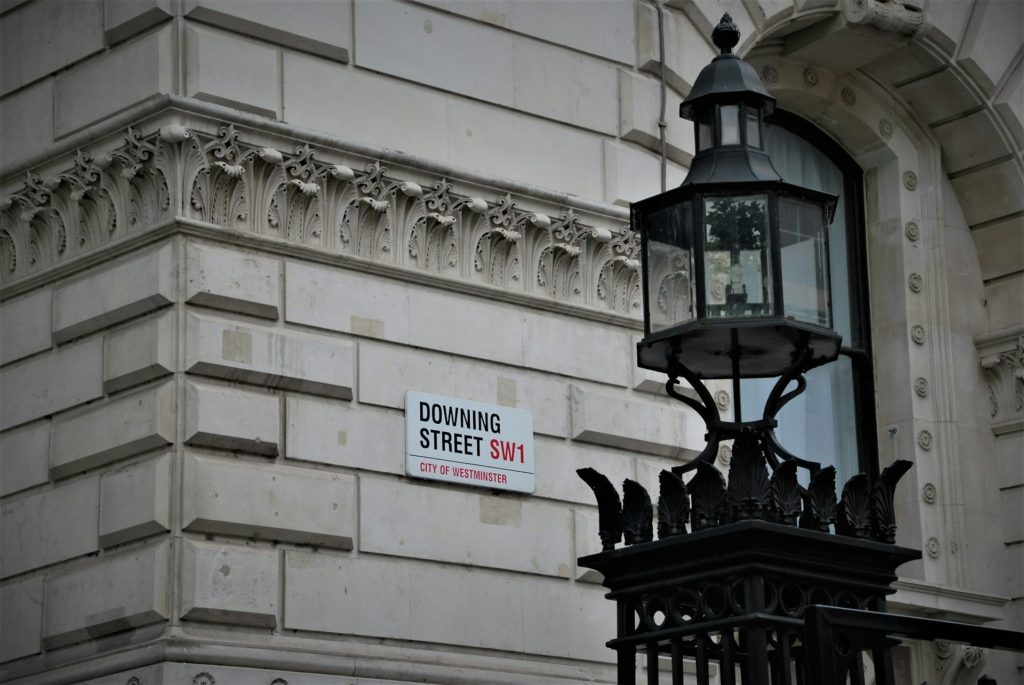Advocacy Work
Advocacy is one of the four pillars of the Heritage Alliance’s organisational strategy. Our vision is for a society in which England’s historic environment and wider cultural heritage is valued, supported, and able to enrich everyone’s lives. To that end, we champion the needs, aspirations, and achievements of the independent heritage sector in all its diversity. Our Policy Team aims to deliver a programme that is focused on the areas of greatest need and potential impact, which complements and reinforces the work of other sector advocates.
The Alliance has well-established connections across government departments, as well as a broader range of policy makers and influencers within arms-length bodies, charities, think tanks, funding bodies, academia, and commercial organisations. We are always looking for new ways to advocate on behalf of our Members, express the value of heritage, and attract interest and investment into the sector. Our research and insight work allows us to anticipate emerging heritage priorities and promote policies that will ensure a sustainable future for the sector.
Our regular advocacy work includes:
- advocating for policy and legislation that supports the heritage sector;
- monitoring political developments and identifying relevant heritage issues;
- conducting research to produce policy insights and briefings;
- responding to government consultations on relevant issues;
- providing representation and expertise to All-Party Parliamentary Groups (APPGs) and Select Committees;
- writing letters to Ministers, MPs, and political parties on key issues;
- regular meetings with influential contacts within government and beyond;
- participating in high-level governmental and sector stakeholder groups.


Advocacy Groups and Working Groups
We regularly engage with Heritage Alliance Members to ensure that our policy positions accurately represent their diverse interests and areas of expertise. One of the primary ways we facilitate this is through our Advocacy and Working Groups. These groups bring together engaged representatives from our Member base for focused policy discussion and strategy development.
We currently have five Advocacy Groups, each of which conducts targeted advocacy work and engagement with relevant government departments to advance a particular area or concern of the heritage sector: Rural Heritage; Spatial Planning; Funding and Investment; Skills, Education, and Engagement; and Mobile Heritage. They track relevant parliamentary and legislative activity, make representations, coordinate Heritage Alliance responses to consultations and inquiries, and support policy development by providing written and oral evidence and briefings. Our Working Groups focus on policy creation, monitoring, and analysis – providing a space for Alliance Members with similar interests to connect with each other and produce substantive recommendations.
Each group normally convenes three to four times a year, but can meet more often depending on the current political landscape or recent government announcements. You can read more about the activities and focus of each group below.
Our Advocacy and Working Groups are only open to Heritage Alliance Members – to find out more about the benefits of membership, please click here. If you are already a Member and would like to join one of these groups, please email our Office Manager. For any broader questions about our ongoing advocacy work, please contact our Head of Policy.
Rural Heritage Advocacy Group
Faces the Department for Environment, Food, and Rural Affairs (DEFRA)
Co-Chairs:
- Pete Gaskell (Countryside & Community Research Institute, University of Gloucester)
- Jonathan Thompson (Country Land and Business Association)
The Rural Heritage Advocacy Group (RHAG) aims to review and influence policies that impact the management of the rural historic environment. Currently, the group’s key focus is the future of environmental and agricultural policy post-Brexit, following the expiry of many protections. RHAG is working to ensure that Environmental Land Management Schemes (ELMS) are able to sufficiently protect all historic landscapes, archaeological remains, traditional farm buildings, and landscape features (such as dry stone walls, hedgerows, and field patterns). More broadly, RHAG advocates for the immense ecological, economic, social, and cultural benefits that rural heritage brings to local communities and to wider society.
For more information, please see previous Heritage Alliance publications on Environment and Climate Change.
Spatial Planning Advocacy Group
Faces the Department for Levelling Up, Housing and Communities (DLUHC)
Co-Chairs:
- Henry Russell (Reading University)
- Charles Wagner (Built Heritage Consultancy / Design Council)
 The key focus of the Spatial Planning Advocacy Group (SPAG) is planning policy affecting the historic environment. Through the Heritage Alliance, SPAG is a member of the National Planning Forum, the principal cross-sectoral voice on planning issues and aims. The group is currently focused on the ongoing development of the National Planning Policy Framework (NPPF), as well as topics surrounding listed building consent orders, reforming permitted development rights (PDR) to demolish unlisted buildings, and retrofitting or decarbonising historic buildings and houses.
The key focus of the Spatial Planning Advocacy Group (SPAG) is planning policy affecting the historic environment. Through the Heritage Alliance, SPAG is a member of the National Planning Forum, the principal cross-sectoral voice on planning issues and aims. The group is currently focused on the ongoing development of the National Planning Policy Framework (NPPF), as well as topics surrounding listed building consent orders, reforming permitted development rights (PDR) to demolish unlisted buildings, and retrofitting or decarbonising historic buildings and houses.
For more information, please see previous Heritage Alliance publications on Planning and Housing.
SPAG is generously sponsored by the Chartered Institute for Archaeologists (CIfA).
Funding and Investment Advocacy Group
Faces His Majesty’s Treasury
Co-Chairs:
- Kate Streeter (Society for the Protection of Ancient Buildings)
- Steve Oates (Heritage Railway Association)
The Funding and Investment Advocacy Group (FIAG) aims to review and influence the development of funding policy for heritage and to support members in their capacity to access funding. Key issues for the group include the disparity in VAT between new build and repair projects, funding for maintenance and retrofitting, as well as the broader financial future of the heritage sector following the triple impact of Brexit, the Covid-19 pandemic, and the ongoing cost-of-living crisis. Previously the group have worked on the relaunch of the National Heritage Lottery Fund and the creation of the Alliance’s Heritage Funding Directory.
For more information, please see previous Heritage Alliance publications on Funding and Investment and Taxation.
Skills, Education, and Engagement Advocacy Group
Faces the Department for Education (DfE), and the Department for Science, Innovation and Technology (DSIT)
Co-Chairs:
- Ian Baxter (Heriot-Watt University)
- Victoria Wallworth (National Historic Ships UK)
The Skills, Education and Engagement Group (SEEAG) brings together the broad expertise of Alliance members to influence education, volunteering, and engagement policy. It promotes the role of the NGO heritage sector as a provider of world-leading educational programmes and opportunities for skills development, and acts as a hub for exchanging information, inspiration, and knowledge of best practice amongst participants. Currently, SEEAG is particularly engaged with the ongoing development of the government’s Cultural Education Plan, to ensure that it incorporates heritage learning and takes full advantage of the sector’s educational expertise.
For more information, please see previous Heritage Alliance publications on Volunteering and Civil Society.
Mobile Heritage Advocacy Group
Faces the Department for Transport (DfT)
Chair:
- Stuart Wilkinson (National Transport Trust)
- Henry Cleary (Maritime Heritage Trust)
The Mobile Heritage Advocacy Group (MHAG) works to review and influence policies that impact on the management of mobile heritage, which includes planes, trains, boats, or vintage vehicles that illustrate and encourage historical interest in past technology, lives, and events. Currently, MHAG is particularly concerned with securing fuel sources for mobile heritage as the wider transport sector makes the necessary transition to renewables. It is also focused on future planning and the overall funding landscape.
For more information, please see previous Heritage Alliance publications on Mobile Heritage.
Tax Working Group
Faces His Majesty’s Treasury
Our Tax Working Group brings together a range of stakeholders to explore how the tax system can be reformed to benefit the heritage sector. Currently, the Working Group is focused on how the Government could best address the VAT disparity for the repair and maintenance of historic buildings. Repairs are currently subject to 20% VAT, whilst no VAT is charged for demolition or new-build projects – creating an incentive to demolish old buildings rather than repairing and reusing them.
For more information, please see previous Heritage Alliance publications on Taxation.

